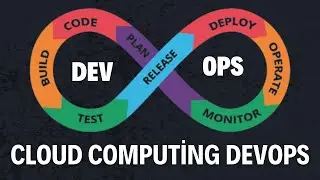Google Cloud vs AWS vs Azure Which One Should You Choose?
Many Cloud providers provide access to Cloud Computing, the major ones being:
Google Cloud Platform (GCP)
Microsoft Azure
Amazon Web Services (AWS)
Choosing between Google Cloud, AWS (Amazon Web Services), and Azure depends on various factors such as your project requirements, pricing, features, and your team's expertise. Here's a breakdown of these platforms to help you make an informed decision:
1. Market Share & Popularity
AWS: Launched in 2006, AWS dominates the cloud market with the largest share. It's widely adopted and trusted by startups and enterprises.
Azure: Microsoft Azure, launched in 2010, is the second-largest cloud provider. It's preferred by organizations already using Microsoft products due to seamless integration with Windows, Active Directory, and Office 365.
Google Cloud: Google Cloud is smaller in market share but excels in data analytics, AI, and machine learning services due to Google's expertise in these areas.
2. Key Strengths
AWS:
Largest and most mature platform.
Offers the broadest range of services (over 200), including compute, storage, databases, AI, IoT, and more.
Leading edge in innovation and service diversity.
Strong global infrastructure with more regions and availability zones than competitors.
Azure:
Excellent for enterprises with Microsoft ecosystems (Windows Server, Active Directory, .NET).
Good hybrid cloud offerings (integrating on-premise with cloud).
Advanced security and compliance, making it a choice for governments and heavily regulated industries.
Google Cloud:
Best for big data, AI, and machine learning projects.
Powerful tools like BigQuery (data warehouse) and TensorFlow (machine learning).
Strong integration with Kubernetes for containerized applications (Google originally created Kubernetes).
Focuses heavily on open-source technologies.
3. Pricing
AWS: Flexible pricing but can become expensive if not well-managed. AWS offers various cost optimization tools, but its complex pricing model can be overwhelming.
Azure: Pricing is generally competitive with AWS but varies depending on services and regions. Like AWS, managing costs requires careful planning.
Google Cloud: Known for its customer-friendly pricing and sustained-use discounts, especially on compute instances. It tends to be more cost-effective for specific workloads like data processing and machine learning.
4. Ease of Use
AWS: Extensive and mature documentation, but due to its vast array of services, the learning curve can be steep.
Azure: Easier for users familiar with Microsoft products. Azure’s portal is user-friendly, especially if you're working within a Microsoft ecosystem.
Google Cloud: Simplified user experience and intuitive platform. It’s also more developer-friendly, especially for those working with open-source or containerized applications.
5. Global Reach
AWS: Largest global footprint with the most data centers (regions and availability zones).
Azure: Also has a vast network of data centers globally, with strong focus on enterprise support.
Google Cloud: Smaller network compared to AWS and Azure but expanding quickly and still has good global reach.
6. Support & Ecosystem
AWS: Rich third-party integration and a mature partner network. Offers premium support plans.
Azure: Tight integration with other Microsoft tools and a growing partner ecosystem. Enterprise-level support is excellent, especially for existing Microsoft customers.
Google Cloud: Still developing its partner ecosystem but offers robust support for open-source technologies and emerging fields like AI and machine learning.
7. Common Use Cases
AWS:
Best for a wide variety of workloads, including enterprise applications, cloud-native apps, big data, AI, and IoT.
Startups to large enterprises leverage its versatility.
Azure:
Ideal for organizations using Microsoft’s enterprise products.
Great for hybrid cloud environments and industries requiring strict regulatory compliance.
Google Cloud:
Best for companies focusing on data analytics, machine learning, and app modernization.
Popular for startups and tech-forward enterprises.
8. Machine Learning & AI
AWS: Offers services like SageMaker for machine learning, but not as specialized as Google Cloud.
Azure: Growing focus on AI with services like Azure AI and Cognitive Services.
Google Cloud: Google’s strength lies here, with advanced tools like Vertex AI and TensorFlow, making it the go-to for machine learning.
Which One Should You Choose?
Choose AWS if you need the most extensive range of services and global infrastructure, and are okay with a more complex setup. It's ideal for organizations needing versatile cloud solutions.
Choose Azure if you are already using Microsoft products or need strong hybrid cloud support. Azure excels in enterprise integration and compliance.
Choose Google Cloud if your focus is on big data, AI, or machine learning. It's great for innovative and developer-friendly environments, especially in open-source or containerized applications.































